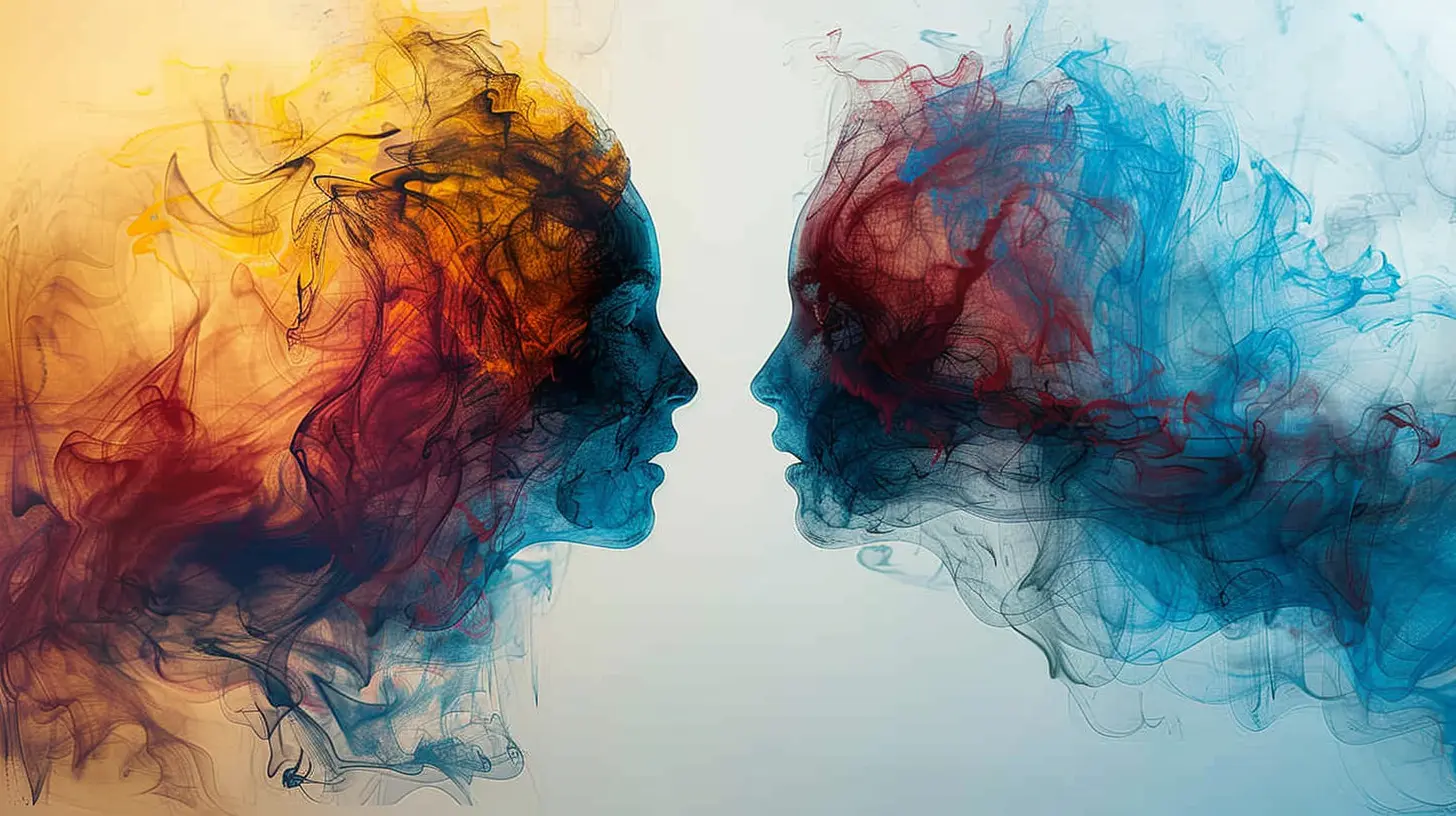How the Mere Exposure Effect Shapes Our Preferences and Choices
11 May 2025
Have you ever noticed how you start liking a song after hearing it a few times, even if you didn’t initially love it? Or how a brand feels more trustworthy simply because you've seen its ads repeatedly? Well, that's the Mere Exposure Effect in action!
This psychological phenomenon influences our daily decisions more than we realize. Whether it's the food we eat, the brands we trust, or even the relationships we form, repeated exposure shapes our preferences and choices subtly yet powerfully.
Let’s dive deep into how this effect works, why it happens, and how it impacts our lives—from marketing to relationships and even political opinions. 
What Is the Mere Exposure Effect?
The Mere Exposure Effect is the tendency for people to develop a preference for things simply because they are familiar with them. The more we see, hear, or experience something, the more we tend to like it—even if we had no strong feelings about it before.Psychologist Robert Zajonc first introduced this concept in the 1960s. Through various experiments, he found that repeated exposure to stimuli (whether words, sounds, or images) made people view them more positively over time.
Think about that catchy song on the radio. The first time you heard it, you might’ve been indifferent. After a few plays, though, it somehow grows on you. That’s the Mere Exposure Effect at work! 
Why Does the Mere Exposure Effect Happen?
So, why do we start liking things just because we see them more often? There are a few possible explanations:1. Familiarity Feels Safe
Our brains are wired to favor things that feel familiar. In evolutionary terms, unknown stimuli could be dangerous, while familiar things are usually safe. This is why we often gravitate towards the same foods, brands, or even vacation spots—our subconscious tells us they're a "safe bet."2. Reduced Cognitive Effort
When we encounter something repeatedly, our brain doesn’t have to work as hard to process it. Since it’s already stored in our memory, we recognize it effortlessly, leading to a sense of comfort and preference.3. Positive Associations Build Over Time
The more we hear a song, see a face, or experience a brand, the more opportunities we have to form positive associations with it—especially if those exposures happen in pleasant contexts.
How the Mere Exposure Effect Influences Everyday Life
The Mere Exposure Effect isn’t just a quirky psychological trick—it plays a huge role in shaping our preferences and decisions in various areas of life.1. Marketing and Advertising
Ever wondered why companies bombard you with the same commercials over and over? It’s not just because they have a big budget—it’s because they know repetition breeds familiarity.- Seeing a brand repeatedly makes it seem more trustworthy.
- Catchy jingles and slogans become embedded in our memory.
- Familiar brands feel like the "safe" choice when shopping.
That’s why Coca-Cola, Nike, and McDonald's invest so heavily in advertising. The more you see them, the more you subconsciously trust and prefer them over less familiar brands.
2. Relationships and Social Attraction
Ever noticed that you tend to like people you spend more time with? Or that you start developing feelings for a coworker or classmate after repeated interactions? That’s the Mere Exposure Effect working in social settings!- The more we interact with someone, the more we usually like them.
- Familiarity breeds comfort, making relationships feel more natural.
- Even physical attraction can increase with repeated exposure.
This is why long-distance relationships can be challenging—without regular exposure, the emotional bond may weaken over time.
3. Politics and Public Opinion
Politicians know this trick well. That’s why they plaster their faces on billboards, flood social media with ads, and give countless speeches. Even if voters don’t fully understand their policies, repeated exposure makes the politician feel familiar, increasing their chances of getting votes.This is also why conspiracy theories or misinformation can gain traction—when false information is repeated enough, people start believing it’s true simply because they’ve heard it multiple times.
4. Music, Movies, and Pop Culture
Ever hated a song at first but ended up loving it later? That’s because repeated plays create a sense of familiarity, making our brain more receptive to it.The same applies to movies and TV shows—you might not love a certain genre at first, but after watching similar content repeatedly, you may develop a liking for it.
5. Online Content and Social Media
Ever wonder why viral trends take off so quickly? It’s because repeated exposure makes people more likely to engage.- Trending songs on TikTok become addictive after hearing them a dozen times.
- Memes become funnier the more you see them.
- Repeated exposure to influencers builds trust and loyalty.
Brands and influencers leverage this to keep themselves relevant—the more you're exposed to them, the more you like and trust them. 
Can the Mere Exposure Effect Backfire?
While this effect generally works in favor of increasing likability, there are times when it can backfire.1. Overexposure Leads to Annoyance
Ever heard a song so many times that you end up hating it? Or seen an ad so frequently that it drives you crazy? When exposure crosses a certain threshold, it shifts from familiarity to irritation.
2. Repetitive Misinformation Can Be Harmful
If false information is repeated enough, people may start believing it—even if it's completely incorrect. This is why fake news spreads so easily on social media.
3. Can Limit New Experiences
Since we tend to gravitate towards familiar things, we might miss out on new experiences or perspectives. If we stick to the same foods, music, and brands just because they’re familiar, we may never discover better options.
How to Use the Mere Exposure Effect in Your Favor
Now that you know how this effect works, you can use it strategically in different areas of your life:1. Building Positive Habits
If you want to build a new habit (like exercising, reading, or eating healthy), start with small, frequent exposures. The more you experience it, the more natural and enjoyable it will become.2. Strengthening Relationships
Want to build stronger personal or professional connections? Simply spending more time around people—whether in person or through messages—can increase likability and trust over time.3. Marketing Yourself or Your Business
If you’re trying to grow a brand, consistency is key. The more people see your content, the more likely they are to trust and engage with you. That’s why regular posting on social media is so important!4. Expanding Your Preferences
If you often stick to the same things, challenge yourself to increase exposure to new experiences. Listen to new music, try different foods, or watch unfamiliar movie genres—over time, you might develop new favorites.Final Thoughts
The Mere Exposure Effect is a powerful force that shapes our likes, decisions, and behaviors in ways we often don’t even notice. Whether it's the brands we trust, the people we befriend, or the music we grow to love, repeated exposure subtly rewires our preferences every day.Understanding this effect helps you become more aware of the influences around you—so you can make more informed choices, build better habits, and even use it to your advantage in relationships, business, and personal growth.
Next time you find yourself liking something more than you initially did, take a step back and ask—is it truly great, or have I just seen it enough times?
all images in this post were generated using AI tools
Category:
Psychological TheoriesAuthor:

Paulina Sanders
Discussion
rate this article
3 comments
Clarissa Mercado
Is it just me, or does my growing love for pizza have something to do with how often I see those cheesy slices in my fridge? Thanks, Mere Exposure Effect!
May 16, 2025 at 2:36 AM

Paulina Sanders
You're spot on! The mere exposure effect suggests that repeated exposure to something, like pizza in your fridge, can indeed enhance your liking for it. Enjoy those cheesy slices!
Quincy Franco
This article beautifully highlights how familiarity influences our choices. It's fascinating to see how our preferences evolve through simple exposure over time. Great read!
May 15, 2025 at 4:14 PM

Paulina Sanders
Thank you for your thoughtful comment! I'm glad you enjoyed the article and found the concept of the mere exposure effect intriguing.
Ardyn Gilbert
What a fascinating read! The mere exposure effect really highlights how our preferences can shift without us even realizing it. It’s amazing how familiarity can shape our choices—definitely gives me something to think about in my daily life! Thanks for sharing!
May 15, 2025 at 3:10 AM

Paulina Sanders
Thank you for your thoughtful comment! I'm glad you found the article engaging and that it sparked new insights for you.



